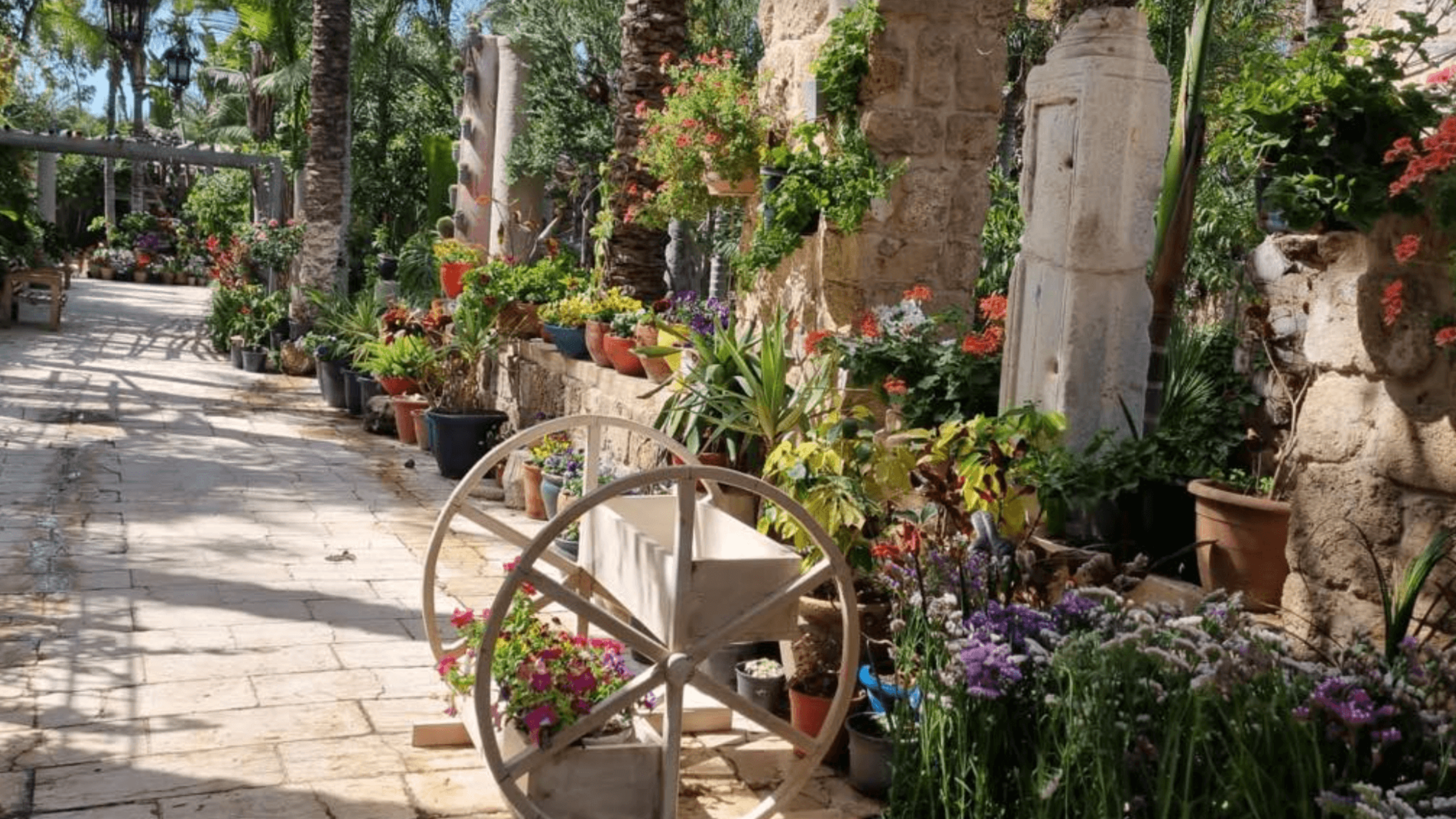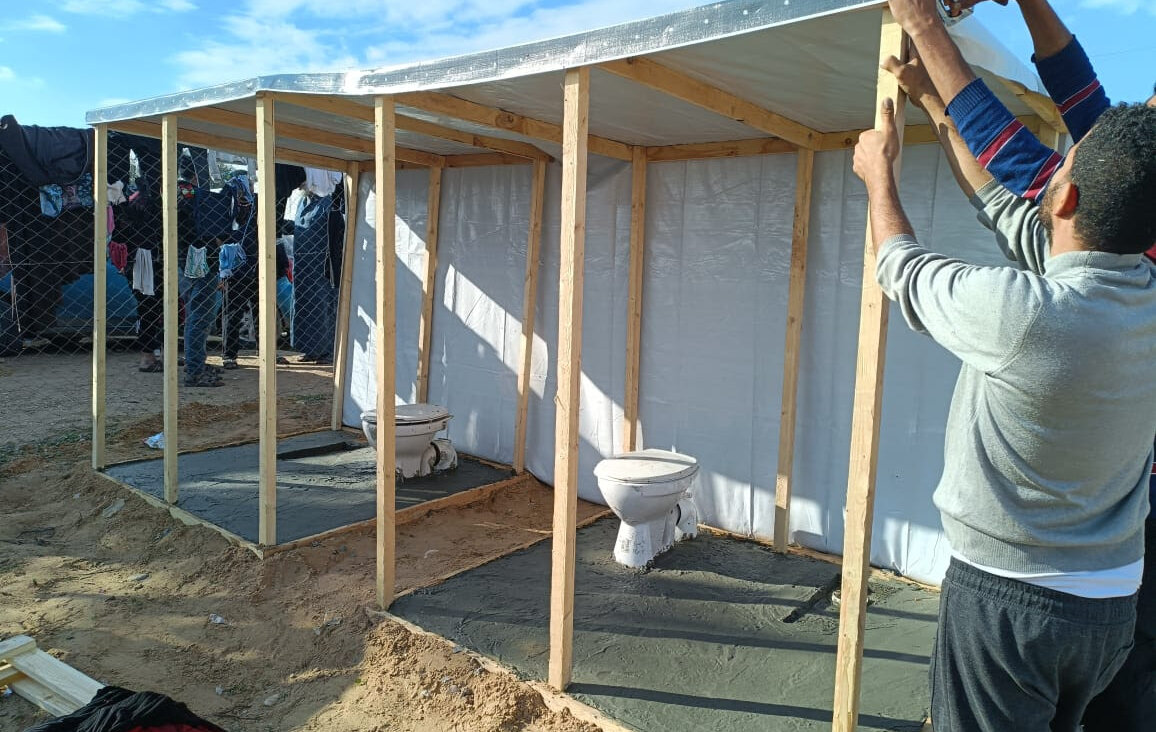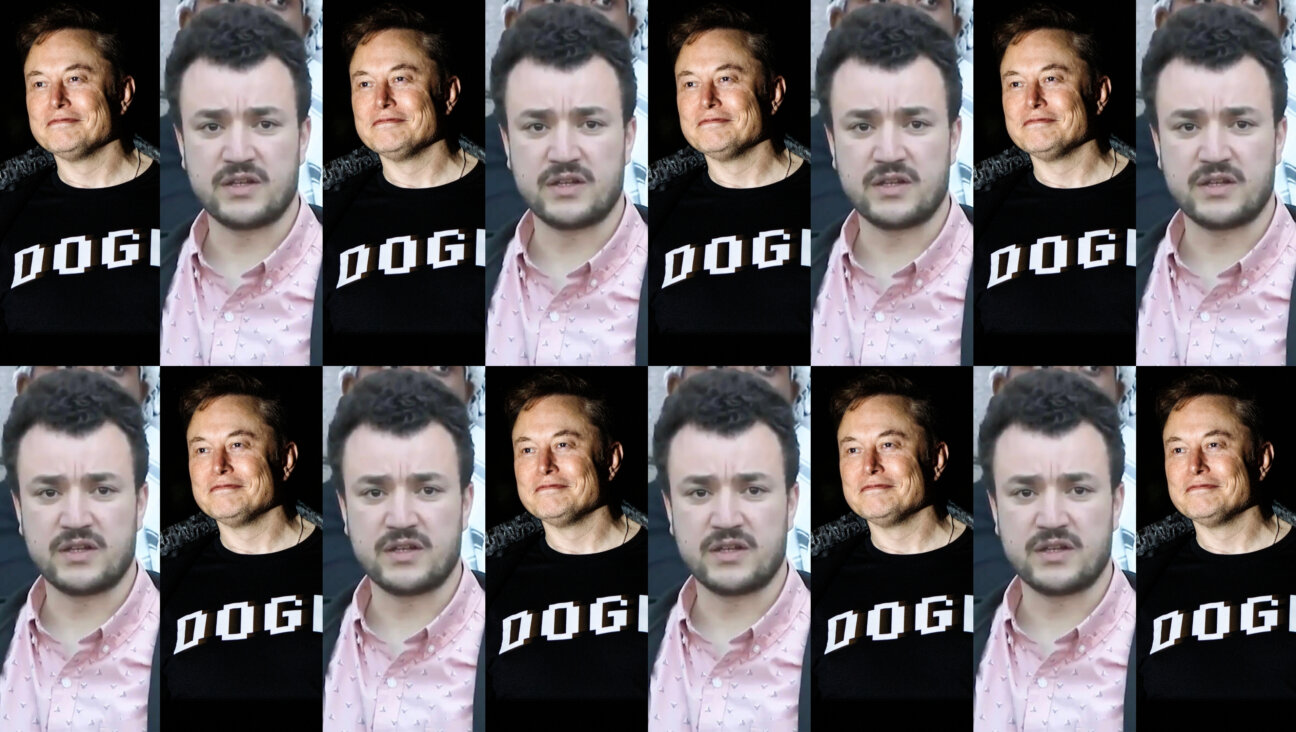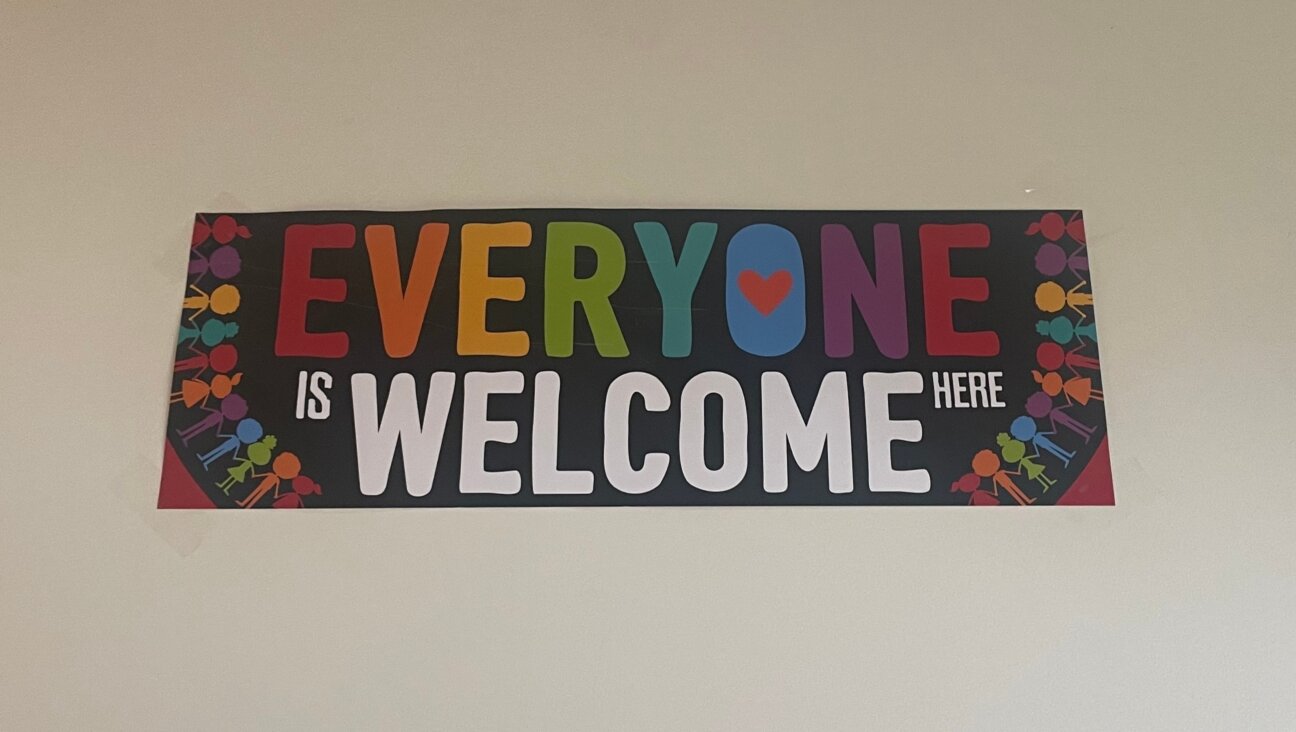The loveliest place in Gaza is gone
“It was the most black day of my life to decide to leave Gaza,” describes Gaza City resident Jawdat Khoudary.

Filled with native and imported plants, Jawdat Khoudary’s 100,000-square-foot garden in Gaza City before the war. Courtesy of Jawdat Khoudary
Jawdat Khoudary’s home and garden was not just the loveliest place I ever visited in the Gaza Strip, it was one of the most serene — and surreal — spots I’ve ever seen anywhere.
Khoudary, a construction mogul whose family dates back nine generations in Gaza, had created a 100,000-square-foot oasis amid the coastal enclave’s dense concrete mazes. Mosaic paths laced through lush, colorful legions of native and imported plants. Greenhouses covered tens of thousands of tiny cactuses from around the world that he was trying to cross-cultivate. Inside, ornate columns and chandeliers surrounded his beloved history books and collections of local antiquities.
Now, remnants of those columns are surrounded by rubble, according to a video Khoudary sent me, everything else having been destroyed in this horrible Israel-Hamas war.
“Can you imagine? They didn’t leave one plant or one tree,” sighed Khoudary, 64, who fled to Cairo in December. “They broke my heart.”
I met Khoudary nearly a dozen years ago, on the seventh day of the eight-day Gaza war of 2012 that in retrospect feels like a schoolyard fistfight compared to the past four months of death, destruction and displacement.
As I wrote then in The New York Times, he experienced that mini-war, in which Israeli airstrikes killed 174 Palestinians in Gaza, from a perch of extraordinary privilege. A guard from Khoudary’s construction company brought him enough Marlboro Reds to last three weeks, and a butler served us fresh-picked clementines as we chatted. He was a “soft bear of a man in sweats and sandals,” as I put it, and had spent the week learning to use Facebook from the youngest of his five children, Hamza, then 14.
But even they were not immune to the sounds of bombing at night.
Khoudary had shuttered the hotel he then owned, Al-Mathaf, and the adjacent antiquities museum he’d opened in 2008, because they were in a neighborhood facing heavy bombing. He’d halted work on the two hospitals he was building in Gaza, but kept paying his 60 employees, he told me, because “we have to show the people we are committed to them.”
Two years later, amid the intense 51-day war of 2014 that killed some 2,200 Palestinians in Gaza, Khoudary, now fluent in Facebook, posted bits of poetry and relevant history to the site. A new seaport was being discussed in truce talks, so he wrote of Anthedon, a 7th-century B.C.E. Gaza port that served as a main trade conduit between the Middle East, Europe and Asia Minor.
I returned to the Khoudary compound during a brief ceasefire that summer; Jawdat was in the West Bank on business, so I sat with his wife, Faten; their two daughters, who had recently graduated from the American University in Cairo; and Hamza. We munched green grapes from the garden and supped coffee with cardamom.
Again, their experience of the fighting was anything but typical. One daughter, 24-year-old Yasmeen, told me she’d read Lolita, Kafka on the Shore and a Pakistani comedic novel, A Case of Exploding Mangoes, during the war. Hamza, then in 10th grade, had been watching Harry Potter movies. But Yasmeen also spoke about the nightmares she had after seeing “headless fighters” in the streets where Israel bombed Hamas tunnels.
Weeks before that war broke out, the family had fulfilled one of their dreams, an exhibit and sale in Gaza of the succulents they so carefully cultivated. Jawdat had taught me that the Arabic word for cactus, sabr, also meant patience.
“This is what we need in Gaza,” he’d said in 2012, “to be patient.” During our 2014 visit, Faten showed off her favorite, a hybrid of eight species, grown over seven years to be taller than her.
“The bigger they are, the more beautiful they are,” she told me. “The more care you give them, the more they give you.”
Khoudary was never stuck in Gaza like the vast majority of its 2.1 million residents. When we first met in 2012, he was traveling monthly to or through Israel and had visited more than 40 countries around the world. But he was deeply attached to Gaza — his family had lived there for more than two centuries — and said the year he’d spent living in Cairo was “maybe the worst in my life,” due to homesickness.
Now he is not sure when he’ll go back or whether he’ll stay.
“The IDF has destroyed all Gaza, Gaza will not be a place to live — now we are looking for any business opportunities in Egypt,” Khoudary told me when we spoke this week.
“I’m 64. I don’t have plenty of time left in my life to rebuild it,” he added of the house and garden he began building on his family’s citrus farm in the 1990s. “It needs 30 or 40 years to be like before.”
Khoudary, now a grandfather of eight, does not know when, how, or why the house was hit. He left it about four days after the war began in response to the Hamas terror attack on Israel Oct. 7, moving to another house he owns, in Gaza’s old city, because it seemed safer.
But 50 days later, he said, under pressure from his children — now ages 24 to 34, the girls married and living in London and Germany, the boys mostly working in the family business in Gaza — the family used Faten’s Egyptian passport to exit through the Rafah border.
“It was the most black day of my life to decide to leave Gaza,” Khoudary said.
Until last week. Israeli forces had withdrawn from the area of Gaza City where the compound sat, making it accessible to Gazans for the first time in months. A friend went to check on Khoudary’s house, and sent the video of it in ruins.
Khoudary said the chocolate factory his sons opened in Gaza two years ago was also destroyed in the war; they are looking to revive the business in Cairo instead. He is unsure what has become of the antiquities museum.
He — and I — know there are many people in Gaza suffering much more than the loss of a business or a home. The Palestinian death toll is nearing 28,000 in this war that President Joe Biden last night called “over the top.” Entire families have been wiped out; famine is on the horizon. And truce talks that might have freed the 100-plus remaining hostages fell apart this week over Hamas’ insistence on remaining in power.
When I first wrote about Khoudary a dozen years ago, I called him “one of Gaza’s wealthiest men and one of its boldest dreamers.” His dreams have died in this war.
“They are creating hate, Israel is creating hate,” he told me. “This war, it was not against Hamas, it was against the whole people of Gaza. Killing, destruction, is the main purpose, for the whole people, no differentiation.”
I reminded Khoudary of what he’d taught me when we first met about the cactus and patience. It seems both are gone.
“They didn’t leave one cactus,” he said. “They have destroyed the patience.”























